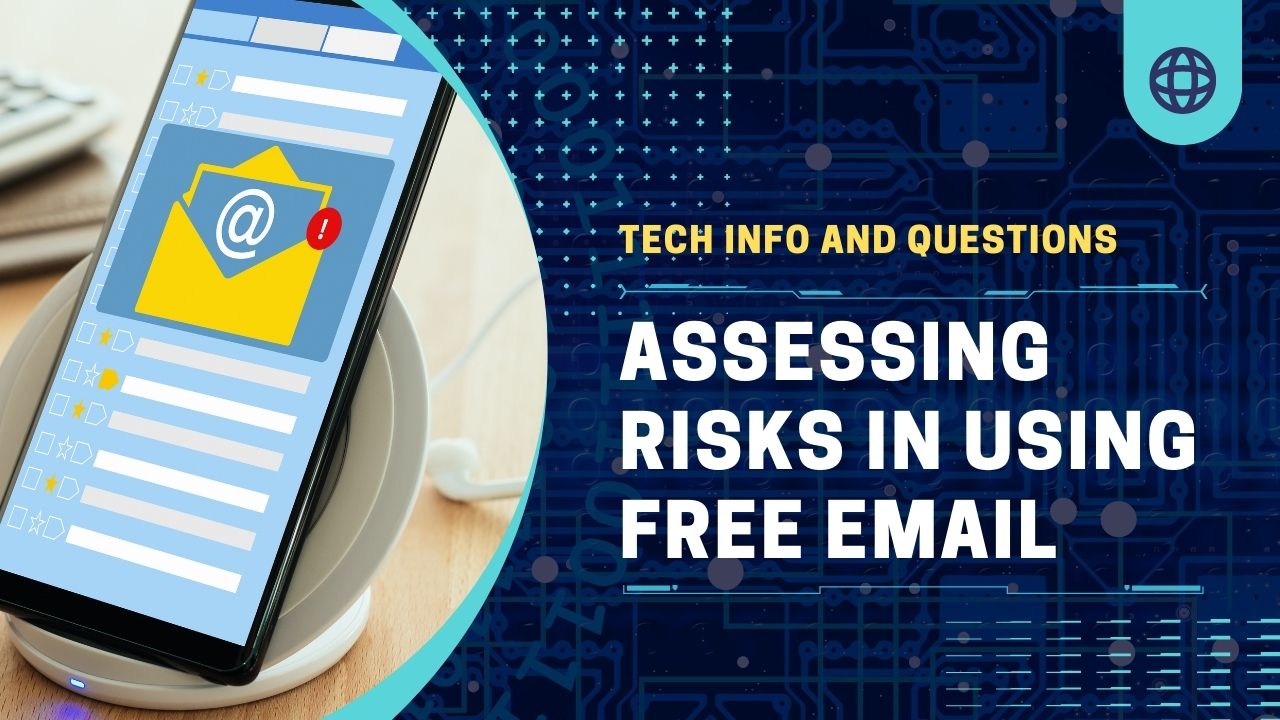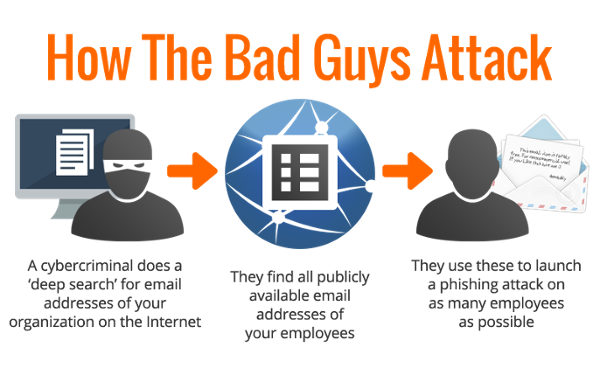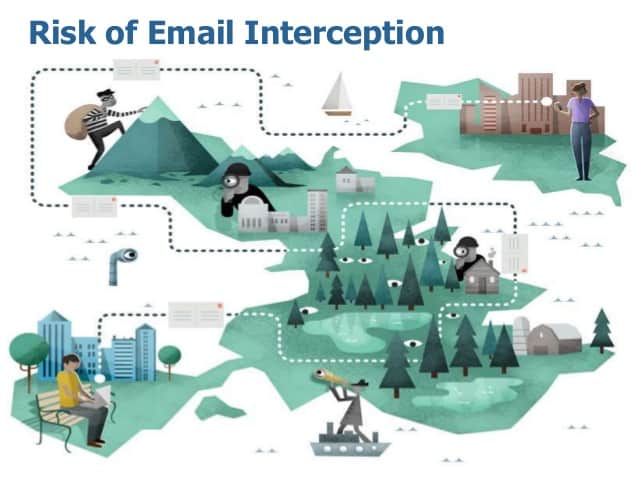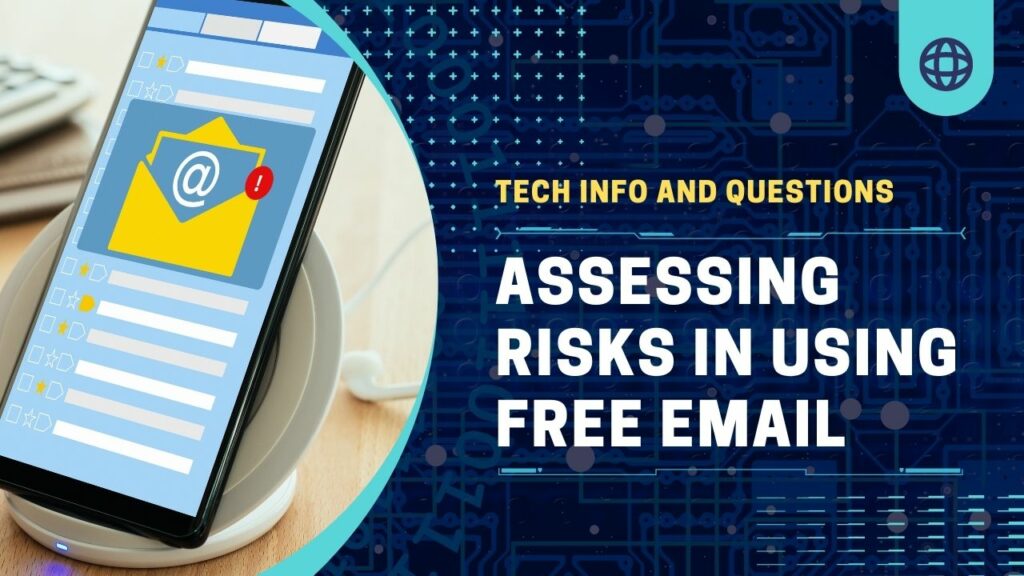 The idea of a free email account has skyrocketed in popularity in recent years as more and more people have come to rely on email services. These accounts provide users with an easy and inexpensive way to connect. However, despite the ease of use and accessibility, it is essential to consider the potential dangers related to the use of a free business email service. In the following article, let’s look at potential risks to privacy, data ownership, and data security that come with using a free email service. And together, let us find the answer to the question, “Is there a risk of having a free email?”
The idea of a free email account has skyrocketed in popularity in recent years as more and more people have come to rely on email services. These accounts provide users with an easy and inexpensive way to connect. However, despite the ease of use and accessibility, it is essential to consider the potential dangers related to the use of a free business email service. In the following article, let’s look at potential risks to privacy, data ownership, and data security that come with using a free email service. And together, let us find the answer to the question, “Is there a risk of having a free email?”
Is there a risk in having a free email?
Using a free email service does come with some potential downsides. These hazards include the possible invasion of privacy resulting from your personal information being analyzed. And also utilized for advertising more specific to your interests. Because many free professional email providers do not offer effective encryption mechanisms, the data security of your emails and attachments may be subject to unwanted access. When utilizing a free email service, several additional dangers exist. These risks include restricted storage space and capabilities, unreliable customer assistance, and the likelihood of your account being deleted or suspended.
How Free Email Addresses Hurt Your Business
Free email addresses may be harmful to your company in several different ways. When used for business communications, a free email service can give the impression that you need to be more professional and can damage your credibility.
It makes your business look cheap.
If you use a free email account for your company, potential customers can understand that your company needs to be more professional or low-priced. When you use a free generic email address like [email protected] or [email protected] for your company’s correspondence, your brand identity and the personalized touch of a custom domain email are absent. This could give the impression that you must put more effort into developing a reputable online presence.
People can question your professionalism, credibility, and dedication to quality as a result of this. This view can harm your reputation, and potential clients may opt to do business with your competitors who have personalized email addresses that match their brand instead of doing business with you.
Lack of Customer Trust
Customers are highly appreciative of companies that put their safety and privacy first. Free email services frequently pose a higher risk of data breaches and unauthorized access due to minimal security measures.
Customers may become suspicious. Leading them to question whether or not it is safe to disclose sensitive information to your company. When consumers see an email sent from a free and generic email address, it may cause them to mistrust the sender’s validity.
They may view the legitimacy of your company with a greater degree of skepticism, harboring the suspicion that it is a con or some other type of dishonest enterprise.
Hurts your business credibility
When you rely on a free email address from a provider like Gmail or Yahoo for your business communication, it sends a message to your customers, clients, and partners that you may not be a serious or professional entity.
A custom domain email provides the benefits of branding and personalization that are unavailable with a free email account. Because it does not prominently display your company name, it is difficult for receivers to connect your emails with your brand. Because of this lack of branding, your company may come off as generic and unestablished, reducing your credibility in the eyes of those who receive your message.
You Risk Security
When you use free email services, you put your personal information at risk. These platforms frequently lack adequate security safeguards. Making it possible for unauthorized parties to view your emails and any attachments you upload. Phishing and spam attacks direct toward free email accounts. Increasing the chance of becoming a scam victim or downloading dangerous software. In addition, free email services have a higher risk of experiencing data breaches. This puts your personal information at risk and may expose important company information to the public.
Gets mistaken for spam
Due to a combination of several reasons, free email services are frequently confused with spam. As a result of the negative connotation that is commonly attached to free email domains due to their association with spammers and con artists, email filters tend to be wary of messages that originate from these domains. Excessive promotional language, huge attachments, or particular keywords are all examples of content and formatting aspects that might set off spam filters, causing valid emails to be sent to spam folders. Additionally, if sending practices violate the limitations or engage in bulk emailing, this can further raise the likelihood of emails being marked as spam by the recipient’s email provider.
Lack of privacy and support
Regarding users’ privacy and assistance, free email services frequently need to catch up, which can provide users with possible drawbacks. These services often rely on targeted advertising as their primary revenue source, necessitating examining user data, email content, and surfing behavior for marketing. In addition, free email service providers may disclose user information to unaffiliated third parties, harming users’ privacy and subjecting them to unsolicited commercial communications. Free email providers frequently provide inadequate or nonexistent customer care, leaving users with little assistance if they experience technical issues or problems with their accounts.
Low deliver-ability
Free email providers frequently need better deliverability rates, which can harm your ability to communicate effectively via email. These free email domains could have a worse reputation than emails sent from a user’s domain. Because free email services are more likely to contain spam and other fraudulent activity, email filters and internet service providers (ISPs) are more cautious with emails from free email services.
Free email service providers often use shared IP addresses when sending emails on their consumers’ behalf. Free email providers may not incorporate robust email authentication protocols like DKIM, SPF, or DMARC. These authentication procedures assist in validating the senders of emails to ensure that they are legitimate and improve the deliverability of emails. Free email services frequently restrict the number of messages users can send during a given period.
Has lower open rates
The effectiveness of your email communications may suffer if you use a free email account. As these providers typically have lower open rates. Free email domains have a reputation for being a common source of spam and other unwanted emails. Consequently, users may be more hesitant to open emails from free email accounts. Because they are concerned that the emails might contain phishing efforts or unnecessary promotional material.
Free email services may have issues with inbox placement. Meaning, messages sent from these accounts can regularly end up in the spam or junk folders of the receivers’ computers. The spam filters used by free email services are typically less advanced than those used by premium email services. As a result of this, valid emails may be wrongly filtered as spam and will not be delivered to the recipient’s inboxes.
5 Benefits of Having Your Email Hosted at Your Domain:
A Smaller Target for Cyber Attacks

One advantage of hosting your email at your domain is that it creates a smaller target for cyber attacks. Compared to depending on a third-party email service with millions of subscribers, hosting your email infrastructure on your domain reduces the number of potential victims. This reduction in exposure makes your email system less enticing to hackers and reduces the likelihood of being targeted. Furthermore, you have greater control over your security measures. Allowing you to modify and reinforce your email infrastructure’s defenses to better protect against cyber threats.
More Control
Suppose you host your email at your domain. In that case, you will have greater control over customization, branding, scalability, integration with other services, data retention, compliance, backup, and disaster recovery.
Better Customer Service
Hosting your email at your domain can help you provide better customer care. You project a professional and trustworthy image to your consumers using an email address matching your domain. This unique email address strengthens your brand’s identification and allows you to communicate with your customers more effectively. It promotes identification and credibility by allowing for prominent and consistent branding across all customer interactions. Furthermore, hosting your email in your domain gives you direct control over your email service. Allowing you to respond to customer inquiries, solve their problems, and provide quick support. This amount of control and reactivity can significantly boost client happiness and loyalty, resulting in a favorable overall customer experience.
More Professional
Your communication will become more professional if you host your email at the domain you use for your website. Using an email address consistent with your domain gives the impression that the user is legitimate and credible. Clients, partners, and other stakeholders will get the belief that you are a serious and well-established company thanks to this. Such a professional image helps generate trust, increasing your brand’s reputation.
More Customization
Having your email hosted at your domain gives you access to a more significant number of customization choices. Which enables you to adapt your email service to meet the requirements of your business. You can design various functions of a domain-hosted email. Such as email forwarding, email aliases, and distribution lists, according to your business’s organizational structure and communication needs. This flexibility allows you to develop a more streamlined and efficient email system. To improve the efficiency of your email workflow, you may also install customized email policies.
What are the risks of sending emails?

Sending an email contains several fundamental dangers that may affect the sender’s privacy, security, and confidentiality. These risks include unauthorized access to email accounts, phishing attacks that aim to trick recipients into revealing sensitive information, email spoofing to impersonate legitimate senders and interception of emails. At the same time, there are in transit, malicious attachments that contain malware. As well as data leakage due to human error, and vulnerabilities in email servers that attackers can exploit.
Using secure email protocols is one vital security measure that individuals and organizations should implement to reduce the likelihood of these risks. The implementation of email encryption is another measure that to take. Exercising caution with email links and attachments is also essential. Maintaining software that is regularly updated is another recommended measure. Increasing user awareness about potential threats to email security is yet another essential step.
Is it safe to give a website your email?

It is vital to assess the legitimacy of the website and its privacy policy and security measures before providing a website with your email address. It’s because doing so exposes you to specific hazards. Even though there are many respectable websites that responsibly handle user data, there is still the possibility of misuse or data breaches. You may receive promotional emails or newsletters from the website when you enter your email address. Additionally, your email address may be distributed to third parties for advertising, either by sharing or by being sold.
When giving out your email address, use caution and choose carefully the contacts you share it with. A website’s reliability, privacy policies, and the precautions it takes to protect its users’ information are all essential factors to consider before deciding whether or not to use it.
Our Take: Is there a risk having a free email?
Using free email services has several potential downsides, as previously mentioned. Even though many people utilize these services and find them convenient, there may be restrictions on the privacy, security, and management level of your data. Although many respectable free email providers take precautions to protect users’ data, users must be aware of the trade-offs often involved. In the end, the level of danger connected with using a free email service depends on your unique requirements, your level of comfort with risk, and the provider you go with. It is essential to perform a cost-benefit analysis and arrive at a well-informed conclusion, considering your situation and the most important things to you.





